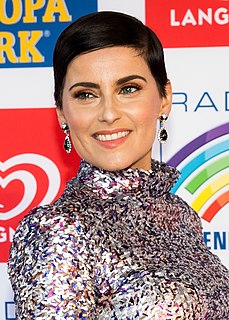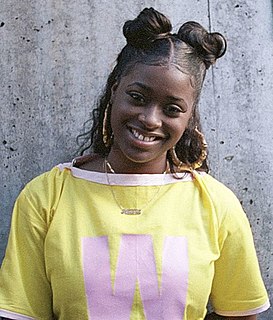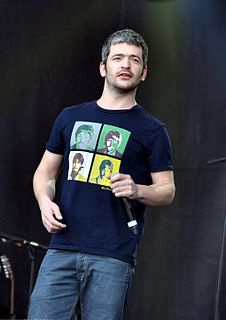A Quote by Philip Pullman
She longed for cutlasses, pistols, and brandy; she had to make do with coffee, and pencils, and verbs.
Related Quotes
I don't know that Brandy [Burre] would ever categorize herself as being trapped, but I felt like I saw her being trapped. When she's cleaning the room and she puts the labels on the toys, that was something that my wife, who's also friends with Brandy, was very adamant that we try to capture. My wife said that showed to her Brandy's creative outlet because she can't be creative in the ways that she used to be or that she maybe wants to be in the future.
She had, without realizing it at the time, learned to follow Nick's gaze, learned to learn his lust...his desires remained memorized within her. She looked at the attractive women he would look at...She had become him: she longed for these women. But she was also herself, and so she despised them. She lusted after them, but she also wanted to beat them up. A rapist. She had become a rapist, driving to work in a car.
She knew, of course that she was being supremely unfair, that Franz was the best man she ever had- he was intelligent, he understood her paintings, he was handsome and good-but the more she thought about it, the more she longed to ravish his intelligence, defile his kindheartedness, and violate his powerless strength
Daisy was a consciously happy young woman without any of the usual endowments that make for conscious happiness, money apart. She was not pretty, she was not clever, she had no friends, no talents, nor even an imagination to make her think she was happy when she was really miserable. As she was never miserable, she had no need of an imagination.
Yet there were times when he did love her with all the kindness she demanded, and how was she to know what were those times? Alone she raged against his cheerfulness and put herself at the mercy of her own love and longed to be free of it because it made her less than he and dependent on him. But how could she be free of chains she had put upon herself? Her soul was all tempest. The dreams she had once had of her life were dead. She was in prison in the house. And yet who was her jailer except herself?
When she walks she walks with passion when she talks, she talks like she can handle it when she asks for something, boy she means it she know you would do [anything] to keep her by your side she'll make you work hard make you spend hard make you want all, all of her she'll make you fall real fast [in love].
She had witnessed the world's most beautiful things, and allowed herself to grow old and unlovely. She had felt the heat of a leviathan's roar, and the warmth within a cat's paw. She had conversed with the wind and had wiped soldier's tears. She had made people see, she'd seen herself in the sea. Butterflies had landed on her wrists, she had planted trees. She had loved, and let love go. So she smiled.
She sits in her usual ample armchair, with piles of books and unopened magazines around her. She sips cautiously from the mug of weak herb tea which is now her substitute for coffee. At one time she thought that she could not live without coffee, but it turned out that it is really the warm large mug she wants in her hands, that is the aid to thought or whatever it is she practices through the procession of hours, or of days.
My mother’s been living alone for over ten years. She gets up at six every morning. She makes herself a coffee. She waters her plants. She listens to the news on the radio. She drinks her coffee. She has a quick wash. An hour later, at seven, her day is over. Two months ago a neighbour told her about your blog, and she asked me to buy her one of those thingummyjigs – by a thingummyjig she meant a computer. And since then, thanks to your trimmings, your ribbon bows, your tie-backs for curtains, she’s rediscovered the joys of life. So don’t tell me you don’t know any answers.






































